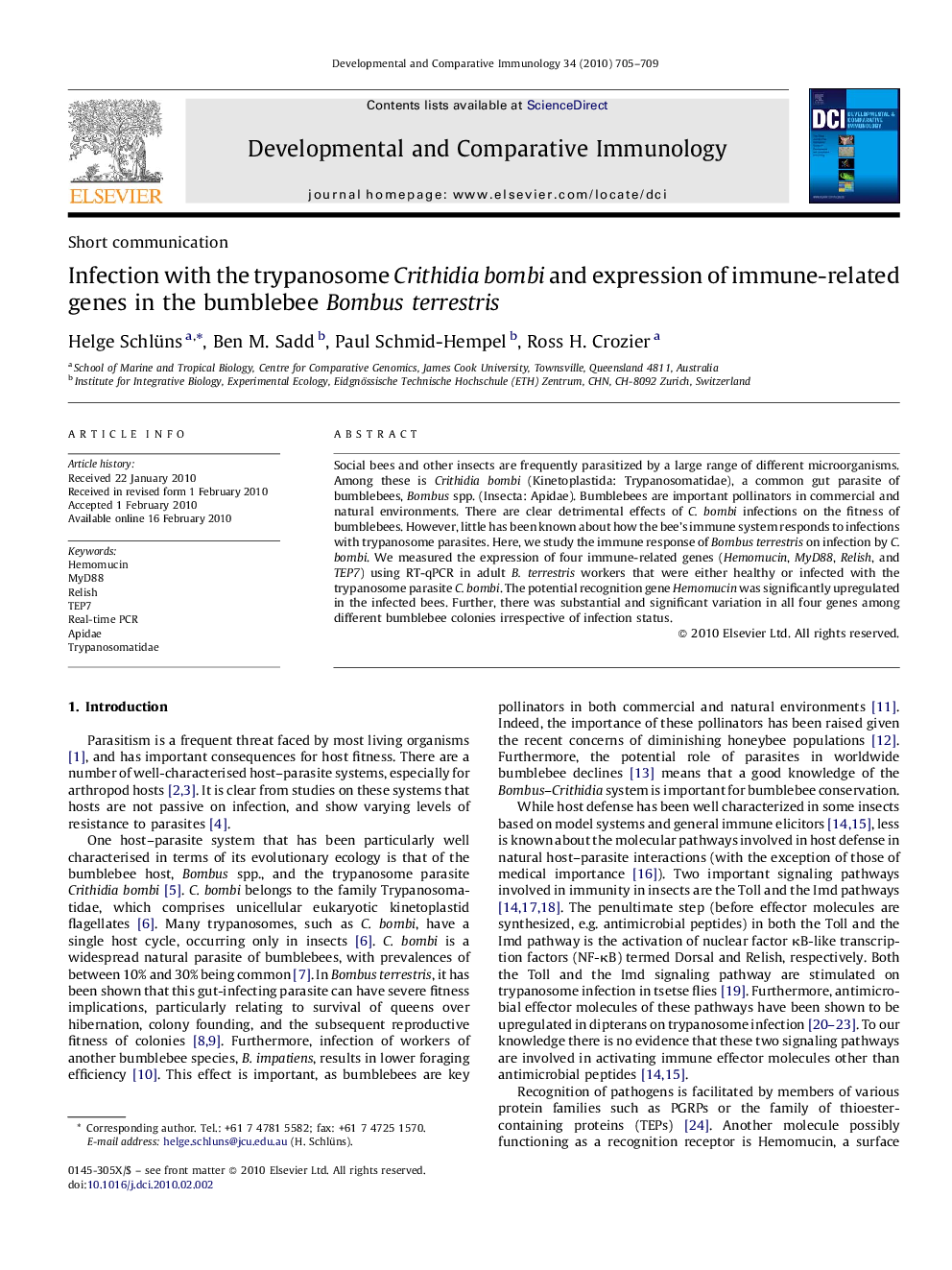| Article ID | Journal | Published Year | Pages | File Type |
|---|---|---|---|---|
| 2429876 | Developmental & Comparative Immunology | 2010 | 5 Pages |
Social bees and other insects are frequently parasitized by a large range of different microorganisms. Among these is Crithidia bombi (Kinetoplastida: Trypanosomatidae), a common gut parasite of bumblebees, Bombus spp. (Insecta: Apidae). Bumblebees are important pollinators in commercial and natural environments. There are clear detrimental effects of C. bombi infections on the fitness of bumblebees. However, little has been known about how the bee's immune system responds to infections with trypanosome parasites. Here, we study the immune response of Bombus terrestris on infection by C. bombi. We measured the expression of four immune-related genes (Hemomucin, MyD88, Relish, and TEP7) using RT-qPCR in adult B. terrestris workers that were either healthy or infected with the trypanosome parasite C. bombi. The potential recognition gene Hemomucin was significantly upregulated in the infected bees. Further, there was substantial and significant variation in all four genes among different bumblebee colonies irrespective of infection status.
